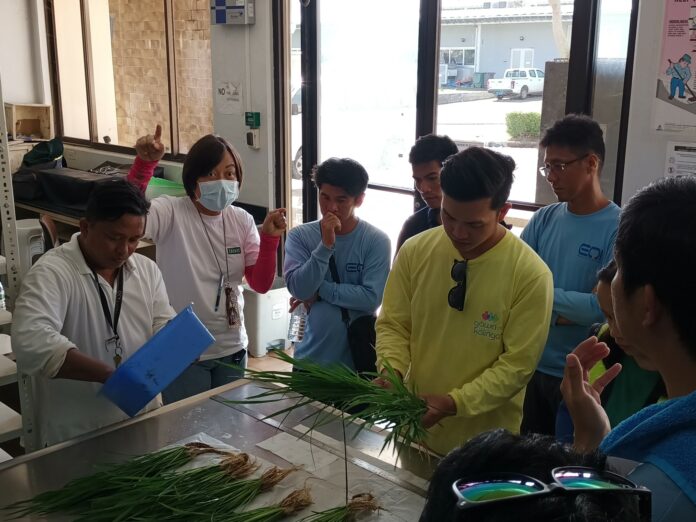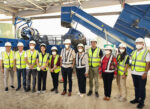The International Rice Research Institute (IRRI) and famed chemicals firm BASF have partnered to reduce greenhouse gas (GHG) emissions from rice production.
The program, called Optimizing Management for Reduction of GHG in Rice, is seen reducing carbon dioxide equivalent emissions by 30 percent per ton of crop produced by 2030.
The collaboration is seen lasting multiple rice seasons in the Philippines and will take place in Laguna where both maintain rice research centers.
IRRI said rice is one of five most widely produced cereal crops globally and consumed by some three billion people everyday.
IRRI said worldwide paddy rice production contributes an estimated 10 percent of the total GHG emissions, mainly from continuously flooded wetland rice fields.
BASF and IRRI plan exploring multiple topics related to climate smart rice farming, including direct-seeded rice varieties, nitrogen stabilizers, nutrient and residue management, novel chemistry tailor-made for rice farmers and water-saving technologies such as alternate wetting and drying management.
The IRRI has further improved its ecophysiological model to include new computation algorithms for estimating GHG emissions for application to the project.
The BASF will use its AgBalance tool to estimate the GHG emission intensity and will work with IRRI on field tests of their products to obtain high-quality agronomic and GHG data.
“This collaboration presents immense opportunities for methane and other GHG reductions to create value for farmers and help improve the production of rice in Asia and the Philippines in particular,” said Bas Bouman, IRRI research director and head of sustainable impact department.







